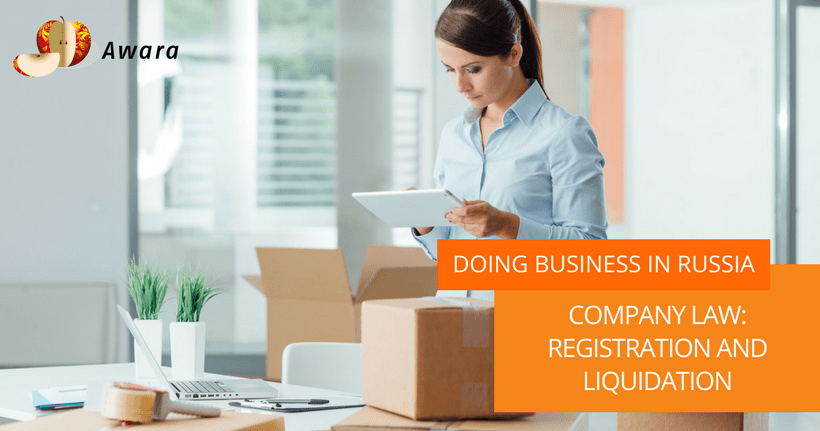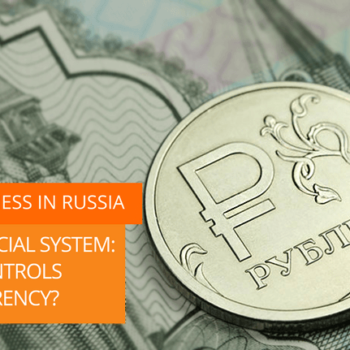
- Eugene Isaev
- June 30, 2017
- 1095
Doing Business in Russia: Company Law
Registration and the Worst Case Scenarios: Liquidation / Insolvency / BANKRUPTCY!?
Who is liable?
According to Russian company law, there are two different sorts of liabilities – parent liabilities and controller liabilities. Although the company’s capital is usually the shareholder’s sole liability (including amounts to be paid), should the company go bankrupt, the shareholders may deem the “parent” liable for the debts of the company or any subsidiary. Then there are the “controller” liabilities, controllers being the owners or any parties who have any sort of influence or decision-making power on the company’s activities. These can be persons or entities, including the parent company.
Registering a company
Company registration can take from a mere three business days (after submission of documents to authorities) to up to six weeks for JSC’s (Joint Stock Companies). It takes longer for JSC’s than other forms, because the issued shares must be registered with the Securities Market and Commodity Market Department at the Bank of Russia. Additionally, it may take a tad bit longer for foreign investors because they shall also have certain documents legalized and translated/notarized. Choosing the right partner to work with in setting up your company should be your utmost priority, in order to assure uninterrupted business development and to avoid finding out later that important steps in the set-up process were missed or that official procedures were violated. Having some patience in the set-up stages will prove to be worth it in order to avoid troubles later on with the tax authorities. We have seen business being halted for long periods for clients who come to us after having confided in services of non-professional consulting firms who may have promised miracles of super fast company set-up and so on. Be wary of those! We cannot stress enough how important abidance by correct procedures is to assure that your core business can thrive. The errors caused by incorrect set-up are more cumbersome to correct later. Also, we do not advice acquiring “off the shelf” companies, due to great potential risks involved with those, such as breeches involving paying taxes, etc. Additionally, when buying a company, the registration of the new owners can take a lot of time, whereby setting up a new company is often much more ideal.
Shareholders, Participants and Managing Directors
LLCs (Limited Liability Companies) and JSCs can be established by just one individual or legal entity, but not by a solely-owned legal entity. While JSCs can have any number of shareholders, LLCs shareholders cannot exceed 50. If there shall be more than 50 shareholders in your company, please consider forming a JSC or a production cooperative.
LLCs require a minimum of RUB 10,000 as statutory charter capital (approx. EUR 149, July 2017). The charter capital is to be paid in full within four months from the date of state registration of an LLC, or before. Partial payment before registration is possible, in which case the founders of the company should open a Russian bank account first. Once the company has been properly registered however, that account is to be closed and the funds are to be transferred to new corporate bank accounts.
JSC charter capital is to be paid in half within three months of registration with the state, and completely paid off within a year.
Forms of charter capital payment can be monetary of in-kind. If paid in the monetary form, it should not be any less than the statutory minimum. For in-kind settlement, an independent appraisal is required regardless of value.
Opening of Bank Accounts
Upon registration, it is a simple procedure to open a bank account (Rouble or other currency). The only requirement, once again, is that you follow government and bank rules!
Costs of Establishing LLCs and JSCs
State registration fees are to be paid by shareholders at the time of registration, in the amount of RUB 4,000 (approx. EUR 59 July 2017). In case it is of interest to register JSC share issues, a registration fee of RUB 200,000 (approx. EUR 2971, July 2017) is to be paid.
Translation and notarizing documents add additional fees.
Net Assets and Converting Debts into Equity
Net assets of LLCs or JSCs must ideally not fall below its charter capital, except for an excused first two financial years. However, should the balance-sheet indicate that this has happened, companies have two options: a) increase net assets; b) reduce charter capital to below its net assets (in any case, not lower than the statutory minimum).
Liquidation becomes a threat when after the first two financial years, LLC or JSC net assets fall below the charter minimum required by law. In this case, shareholders or participants should take actions themselves to liquidate the company, or in extreme cases government authorities could step in by soliciting a court to begin the liquidation process. The situation hence becomes more complex and expensive, considering the creditors who may request compensation for their losses and immediate termination for their obligations.
Fortunately, the Russian corporate law permits converting debt into equity for both LLCs and JSCs (but not to banks). The cases are:
- When an LLC is indebted to a participant, the participant may convert the debt to acquire additional charter capital
- When an LLC is indebted to a third party, the third party may convert the debt to participatory interest equal to the amount owed.
Shareholders may also purchase additional shares in the JSC, but only if the shares are issued via a closed subscription. In this way, they can balance out their monetary claims against a company.
Liquidation and Insolvency
Liquidation can take place after one of five typical cases:
- Shareholders/Participants make the decision at a General Meeting;
- Court order in case of insolvency or bankruptcy;
- Court order in case of violation of laws by the company;
- Court order if the company cannot reach its set goals;
- Expiration of the term or achievement of the company’s goals, when provided in the charter.
When a company goes into liquidation, certain procedures must take place:
- a liquidation commission is formed;
- creditors are notified via various public announcements;
- settlement of creditors’ claims;
- distribution of assets that are left to shareholders / participants;
- conducting tax audit;
- and finally deregistering the company with state authorities.
In case the company under liquidation lacks sufficient assets for settlement of liabilities, the company becomes insolvent. In Russia, creditors of legal entities are protected by bankruptcy law. The law provides a set of guidelines to act by in case of insolvency or bankruptcy. Courts can declare an insolvent company bankrupt if the company has not been able to pay debts during three consecutive months from due date. Legal bankruptcy proceedings fall threat when a company owes more than RUB 300,000 (approx. EUR 4456) to another legal entity.
Coming Together Again
A company that has been in shambles can come together again, if its decision-makers so desire. The company can regroup as a merger, consolidation, split-up, spin-off or transformation, or as a combination of those different options. These are guided by the Civil Code, JSC law and LLC law. Of course, regrouping involves a set of new procedures for the company, such as tax audit; written notification of creditors… Hence, starting over again may not be pain-free and can be a long process, but sometimes it’s worth it and very doable.



